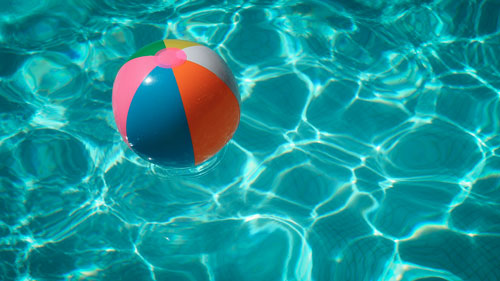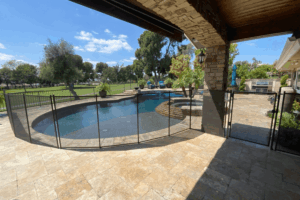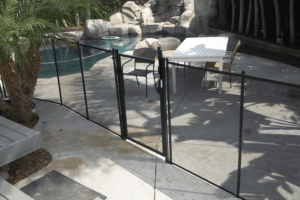
“When should I open my pool?” – A question pool owners think to themselves every year. The answer depends on so many factors, especially where you live. How cold will the weather get at night? Are there swimmers ready and eager to use it? Do you have the right safety equipment in place?
Here, we’ll look at all the considerations for when to open a pool and the potential risks of opening one too early.
Please note, the proper safety equipment should be the most significant factor. Ensure that you have fencing and/or alarms in place to help prevent accidents, especially if you’ll have children or pets around.
Watch the Temperature
Closing an inground pool to prepare for the winter often involves draining the water below the level of the pipes, so that they don’t freeze in cold temperatures and cause expensive damage. That makes asking yourself when to open your pool a smart question — opening your pool too soon, when the temperature at night could potentially dip below 32°F, could risk damaging it. Heating your pool to keep it at swimming temperature could also take a lot longer and become much more expensive. This is especially true if you have a propane or natural gas pool heater. The costs vary significantly depending on the volume of water in your pool and the efficiency of your heater, but the costs are difficult to track and can add up quickly. You may be paying more than $7/hour to heat your pool with natural gas, or more than $18/hour to heat your pool with propane.
If you are indifferent to the cost, an easy answer to “when should I open my pool?” can be ”when you can get it warm enough”. If the air outside is too cold, your heater might not be able to get the water into the 78°F to 82°F range considered best for swimming.
Avoid Pollen & Plant Debris
The best time for when to open a pool can change considerably with the local plant life. Too much pollen or debris like cottonwood tree seeds in your pool water can be a huge hassle to clean, and even wreak havoc on your filtration system.
If there are a few weeks in spring you know are going to produce lots of plant debris, you might want to wait until the coast is clear to open your pool. One effective way to protect your pool water is to use a leaf pool cover specifically made to keep out plant debris. If your pool is the right shape, you can also consider an automatic pool cover to seal the water away with the push of a button.
Gauge When You Want to Use the Pool
You can also determine when to open a pool based on when you want to use it. It’s best to open your pool about two weeks before you first use it.

Two weeks is usually enough time to allow for maintenance tasks like cleaning the pool, inspecting equipment like the pump for potential breaks or issues, and balancing your pool chemistry. Additionally, running your pump for about two weeks ensures that when you finally do jump in, you have clean, balanced water waiting for you.
Appearance
Even the most visually appealing pool covers can inhibit full visual enjoyment of your pool area. When thinking about when to open a pool, think about when your next gathering will be.
Are you planning a backyard BBQ in a few weeks? Consider opening your pool beforehand, even if it might be too cold for a swim. As always, make sure to keep a watchful eye on children and pets when the pool is open!
Contact All-Safe for Your Pool Safety Needs
Ultimately, when to open your pool is your decision, but if you need further guidance, give us a call. Your local dealer will be more than happy to provide a free quote and on-site consultation on any pool safety products. Find your local dealer today.






